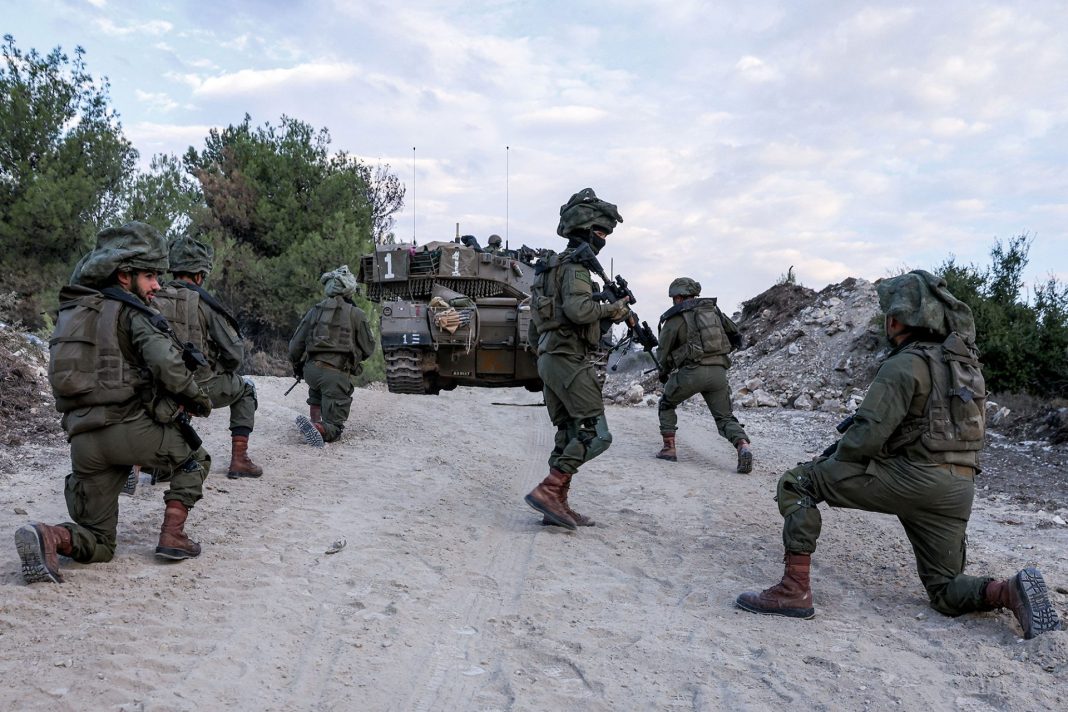According to the feature-length documentary Gaza, published online by Al Jazeera’s Investigative Unit, Israeli soldiers routinely shared abuses they committed on platforms including TikTok, Instagram, YouTube and Facebook after invading the enclave.
The crimes ranged from wanton destruction and looting, to the demolition of entire neighbourhoods and possible unlawful killings.
Al Jazeera said it was able to track down the names, ranks and military units of many of the soldiers after compiling a database of “over two and a half thousand social media accounts, containing photos and videos placed online by Israeli soldiers”.
Human rights lawyer Rodney Dixon, who watched an early screening of the documentary, called it “a treasure trove you very seldom come across”.
Dixon suggested that the documentary could be of relevance to the International Criminal Court (ICC), claiming it included material which “prosecutors will be licking their lips at”.
Israeli and Hamas leaders are currently facing a range of charges before the ICC for their roles in alleged war crimes and crimes against humanity during the war on Gaza.
In May, ICC prosecutor Karim Khan said he filed an application for arrest warrants for Israeli Prime Minister Benjamin Netanyahu and Defence Minister Yoav Gallant, as well as Hamas leaders Yahya Sinwar, Ismail Haniyeh and Mohammed Deif.
The Al Jazeera documentary also supports previous investigations which have highlighted how Palestinian civilians are routinely killed by Israeli snipers.
Commenting on the abuses featured in the documentary, Dixon stated: “Just because a civilian is in an area where combat is going on does not make them fair game.
“If they get involved in hostilities at a particular moment, yes, they lose their civilian status, they can be targeted. But then you have to show the evidence that they are presenting a threat to you.”
“It’s potentially a matter that the International Criminal Court would want to look at,” Dixon added.
The documentary also referenced one video uploaded to YouTube by a member of Israel’s 202nd Paratroopers Battalion, in which three unarmed Palestinian men were shot dead by Israeli snipers.
Retired British army general Charlie Herbert said it was “extraordinary” that an Israeli soldier uploaded the video to YouTube.
“The degree of impunity,” he said, adding, “[There] may have been legitimate targets, but it sure doesn’t look like it to me.”
Later, when commenting on an incident where an Israeli soldier blew up a building, Herbert noted: “The fact that they’ve been able to rig these buildings up with explosives shows very clearly there’s no current threat from those buildings.”
The film also explored how an Israeli army unit destroyed Khirbet Khaza’a, a small town just across the barrier wall separating Gaza from the Israeli kibbutz of Nir Oz, which was attacked on 7 October.
One soldier posted on Facebook a video set to music showing the destruction of the town, along with a voiceover saying: “We went joyously to annihilate the village of the Nazis. We worked hard for two weeks. We blew up the entire village.”
At the end of the operation the soldiers posted before and after shots of the destruction.
According to a separate video posted on Instagram, Israeli soldiers could be seen leaving with a message that read: “Mission accomplished. We… destroyed a whole village as a revenge for what they did to Kibbutz Nir Oz.”
According to Dixon, the human rights lawyer, “It is strictly prohibited to use reprisal against the civilian population of your enemy.”
Bill Van Esveld, an associate children’s rights director at Human Rights Watch, said that the large-scale unnecessary destruction of civilian property was prohibited by the Geneva Conventions and under the Rome Statute of the ICC.
The documentary also includes testimony from Fadi Bakr, a former prisoner at the Sde Teiman detention camp in southern Israel.
After sharing his personal account of his own detention and torture, Bakr describes witnessing Israeli soldiers arranging the rape of one of his fellow prisoners by a dog.
“They [Israeli forces] forced him [the Palestinian prisoner] to the ground on his belly. They tied his hands and tied his feet. There were about eight or nine soldiers. They stripped him of his underpants. A captain came and sprayed something on his backside. There was a dog there. They unleashed the dog on him. The dog raped the young man. It raped him, literally speaking. Rape.”
“It is impossible that anyone ever heard of it or saw it, or [it] could be imagined by a human mind,” he added.
The documentary also highlights the role played by US President Joe Biden and suggests he was the most senior enabler of alleged Israeli criminality, and also explores possible British complicity in Israeli abuses, especially via RAF surveillance flights over Gaza from the Akrotiri base in Cyprus.
The film opens with a quote from Palestinian novelist Susan Abulhawa: “The West cannot hide, they cannot claim ignorance. Nobody can say they didn’t know. We live in an era of technology and this has been described as the first livestream genocide in history, and I believe that to be true.”
